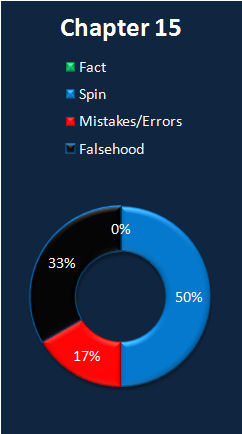
FAIR is a non-profit organization dedicated to providing well-documented answers to criticisms of the doctrine, practice, and history of The Church of Jesus Christ of Latter-day Saints.
| Chapter 14 | A FAIR Analysis of: American Massacre: The Tragedy at Mountain Meadows A work by author: Sally Denton
|
Chapter 16 |
| Claim Evaluation |
| American Massacre |

|
The author claims that a "Jack Mormon" is one "who is not devout but not apostate."
Author's sources: No source given.
The "Mormon euphemism for blood-atoning murders" was to be "put away."
Author's sources:
- Klingensmith testimony, Brooks, Mountain Meadows Witness, 191.
- Lee, 339
- Fielding, Tribune Reports, 109.
John D. Lee denied that Brigham Young ordered the massacre because he believed that Brigham "would protect him from harm."
Author's sources: Author's opinion.
Author's quote: Young fully realized that the Mountain Meadows Massacre would continue to plague him until someone was held accountable for the crime. In a calculated and mutually beneficial deal, Young and Howard came to terms. Young would make available all witnesses and evidence necessary for a conviction of Lee. In exchange, Howard would limit the testimony implicating Young, George Smith, and other church leaders in the affair, and drop charges against Dame. It was an extraordinary quid pro quo that neither side apparently committed to writing.
Author's sources:
- Will Bagley, Blood of the Prophets: Brigham Young and the Massacre at Mountain Meadows (University of Oklahoma Press, 2002), 300.
- Salt Lake Tribune Reports published in Fielding, 207.
John D. Lee chose to be shot rather than beheaded as "a clear signal to the faithful that he rejected a spiritual need to atone for any sins."
Author's sources: No source provided.
Before he is executed, Lee makes a statement against Brigham Young, saying that "I do not agree with him. I believe he is leading the people astray..."
Author's sources: No source is provided for any of the lengthy quoted comments on page 233.

FAIR is a non-profit organization dedicated to providing well-documented answers to criticisms of the doctrine, practice, and history of The Church of Jesus Christ of Latter-day Saints.
We are a volunteer organization. We invite you to give back.
Donate Now